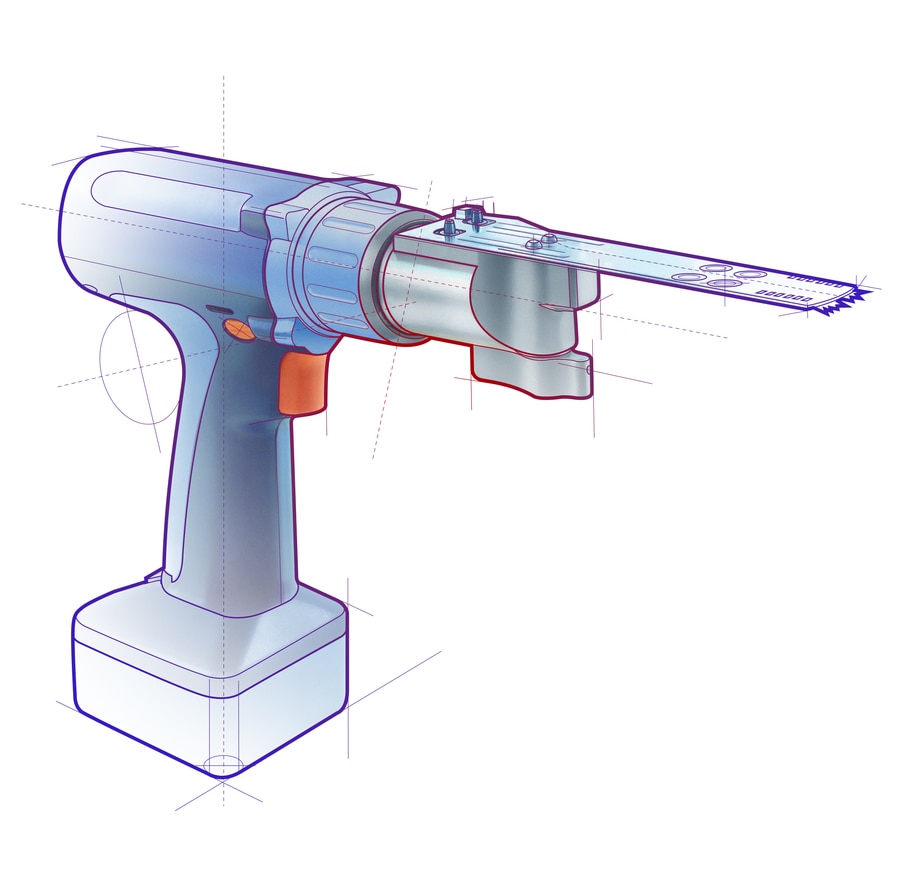
#Product Trends
Surgical Advancements Driven by Mini Motors
Surgical Applications Aided by Advancements in Motor Technology
The development of miniature motors has driven innovation in surgical tool design. As smaller and smaller motors become more readily available in the surgical field, design engineers gain the ability to design downsized surgical instruments and end effectors while simultaneously developing surgical equipment that is more ergonomic in nature. These tiny but powerful devices have also enabled surgeons to perform minimally invasive procedures with greater precision, safety, and effectiveness. Let’s explore more of these advancements, as well as how Portescap is leading the way in meeting the demands for smaller surgical motors.
How Have Miniature Motors Changed the Surgical Industry?
The increased miniaturization of motors has had a significant impact on the surgical industry, leading to several revolutions and advancements. These include:
Expanded Surgical Capabilities. The use of mini motors has expanded the range of surgical procedures that can be performed, as surgeons can now tackle intricate surgeries in areas that were previously difficult to access, such as deep within the body or in confined spaces.
Improved Precision. Miniature motors offer precise control over surgical instruments, such as robotic arms, allowing surgeons to perform delicate procedures with greater accuracy. Surgeons can make tiny, precise movements that would otherwise be challenging (even impossible) with traditional techniques.
Increased Safety. The precise control offered by miniature motors reduces the risk of unintended damage or complications during surgery, enhancing patient safety.
Minimally Invasive Surgery. Mini motors power the surgical instruments that can be inserted through small incisions or natural orifices. This approach reduces trauma to the patient, speeds up recovery times, and minimizes scarring.
Reduced Fatigue. Operating for extended periods can be physically demanding for surgeons. Miniature motors can reduce the physical strain on surgeons by assisting with instrument control, minimizing fatigue, and enhancing their endurance during complex surgeries.
Shorter Recovery Times. Minimally invasive surgeries powered by miniature motors typically result in shorter hospital stays and faster recovery times for patients. This can lead to reduced healthcare costs and improved patient satisfaction.
Portescap’s Motor Technologies in Surgical Applications
Portescap has a long history of designing a full suite of motion solutions for the medical industry, with our miniature motors being used in a variety of surgical applications, including robotic surgery, hand-held surgical equipment, and powered surgical instruments. We’re dedicated to developing inventive motor solutions to meet the growing demand in surgical applications for smaller, lighter, and more effective motors.
In conclusion, the area of surgery has been profoundly impacted by developments in motor technology, particularly the shrinking of surgical instruments and end effectors. This shift has been greatly aided by Portescap's cutting-edge motor solutions, which have allowed designers to produce more ergonomic surgical instruments that are also more accurate and efficient.
We’d love to collaborate with you on your next surgical tool design project! Get in touch with us here; our engineers are ready to help.





